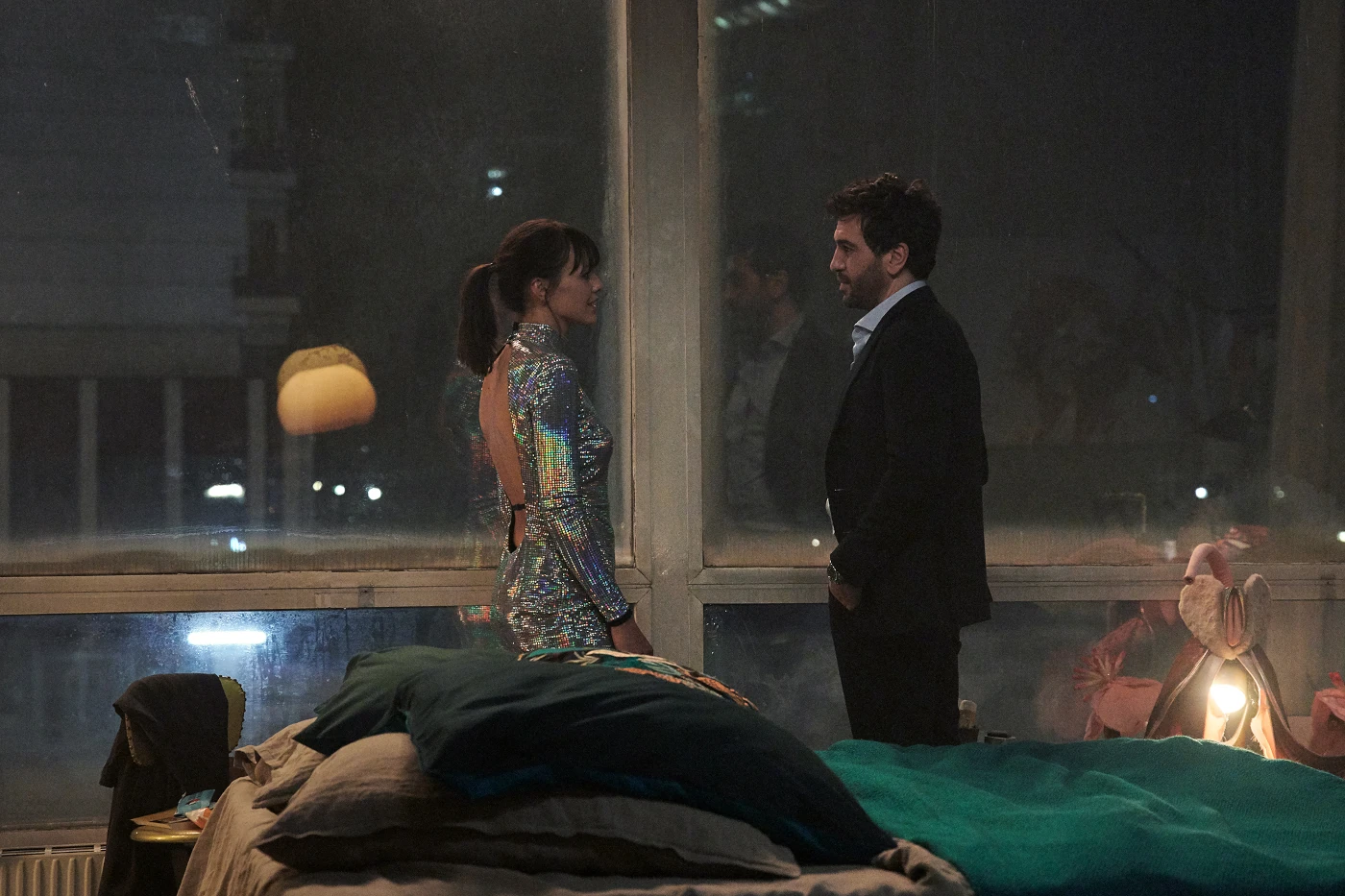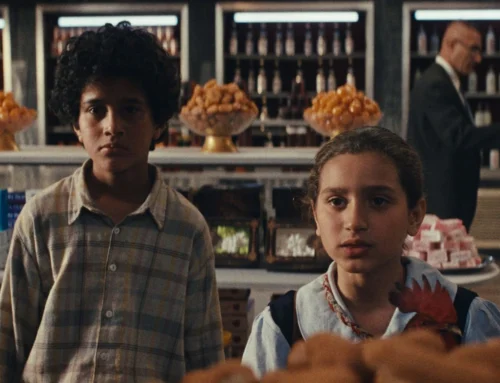Langreview Kurzkritik English Version Fakten + Credits
The money-printing machine of German comedy-romances is back. Anika Decker’s scripts and directing work have already brought Barefoot Films and Constantin Film a rich windfall and attracted several million viewers to the cinemas. Shallow feel-good programming for the upper middle class is an unbeatable concept that has been working splendidly in this country for several decades now and in which some typical faces such as Til Schweiger, Matthias Schweighöfer and Elyas M’Barek have established themselves in the meantime. Clichés and sometimes terrible images of people are always part of the usual concept. Especially women and the social underclass often did not come off well, as their last films TRAUMFRAUEN and HIGH SOCIETY clearly prove. The concern is therefore great that LIEBESDINGS, in view of a rather frightening trailer, will also strike in the same direction.
This is what it’s all about
Superstars don’t have it nearly as easy as it often seems. Marvin Bosch is one of the most important German actors and is therefore adored by the whole nation. But the privileged life in the limelight also brings its dark sides, because nowhere is the youth idol safe from cameras and screaming fans. The tabloids also have it in for him and want to dig up the darkest stories to be able to present big headlines on the trash sheets. An interview with the persistent Bettina Bamberger finally steals Marvin’s last nerve and ensures that he has to go underground shortly before his own film premiere. He finds refuge in the feminist scene theatre „3000“, where the ensemble presents unusual musical performances, dances and comedy programmes. The high-society intruder comes in handy for the theatre team, as the cultural venue is on the brink of financial collapse and must quickly conjure up a solution to save itself.
Review
Director Anika Decker took a five-year break after her last hit. This only had a limited connection with Corona, as filming was taken in the middle of the pandemic’s peak. The question is much more whether, in view of the growing #MeToo debate, Ms Decker has perhaps realised that it is not so smart to always portray women as spoilt fools helplessly inferior to the patriarchal system. A new film version of such a story could have brought a shitstorm with it, which is why now apparently a new approach had to be found that is just as digestible for the masses.
What has happened, however, is solely a new packaging to lay the already familiar theme and once again pit poor against rich and put feminism and diversity in people’s mouths with the flag held high, although both are only superficially shoved into the picture. Symbolic for this is probably that in the accompanying press booklet there is a director’s statement in which on the one hand the hashtag #MeToo is misspelled, but at the same time sentences like the following appear: „My heart has long belonged to all the colours that are at home on the rainbow. The most boring people are always the ones with the uncomplicated childhood anyway, right?“ Whether this is not rather an own goal in view of her cinematic history is left to everyone’s own understanding.
Is this what diversity looks like?
LIEBESDINGS shines neither with creativity nor with profundity and feeds solely on its power to entertain, which will once again hit the nerve of the German audience. There is no question of intelligent direction and script work when a social media photo is shot in landscape format in one of the early scenes, the dramaturgical structure follows the German textbook and themes of diversity and feminism are only thrown in as window dressing to show the not-so-smart audience how cosmopolitan they are. The fact that a fairly diverse cast serves as a basis, on the other hand, is actually commendable, even if all the main roles, as required by cinematic German law, only went to heterosexual cis persons and their characters also follow a similar world view.
If we manage to exchange capitalism for another form of government in 3 weeks, it won’t be all bad. love thing
The story itself comes off the shelf and follows the classic principle in which a rich person falls in love with a poorer person and everyone becomes happy. In between, of course, a few dramas of separation and contempt are inserted here and there. The portrayal of impending destitution is once again presented from an extremely privileged perspective, as Lucie Heinze’s character is merely degraded on the basis of a somewhat dingy old flat in Berlin (Mitte?). However, so that the well-off audience does not have to watch this misery for too long, the linchpin remains Elyas M’Barek, who of course plays nothing less than the German film superstar. A reference to one’s own ego?
Eye cancer for local patriots
Squeaky colourful and completely over-the-top, LIEBESDINGS takes us on a journey through Berlin that should once again give capital city connoisseurs a good bellyache. From the Gedächtniskirche to Pankow and only a few minutes – a dream for every resident. Moreover, the scene theatre doesn’t really live up to Pankow’s reputation, because even if the district was once known for its many clubs and bars that could be assigned to the homosexual spectrum or diverse mentalities, these have been pushed further and further away by fine financially strong eco-families and driven to other corners of the city.
There is no question that the open treatment of female genitalia, periods and queer issues is refreshing, but at the same time a little disturbing. Whether the wearing of a vagina mask softens the prudish German minds or rather ensures that dissenting voices are strengthened in their views is a moot point at this point. Even more shocking, however, is the factor that, according to Der Spiegel, a public broadcaster is said to have balked at broadcasting the trailer in view of the presence of oversized tampons.[1]
 Conclusion
Conclusion
LIEBESDINGS tries to be many things: funny, queer, feminist, romantic, authentic and cultural. However, instead of dealing sensitively with these subject areas, director Decker would much rather bang the table and bang out the full range of stereotypes of each gender identity, regardless. In doing so, she returns to old patterns a little more inconspicuously than usual and merely pulls the right strings, which will satisfy the German one-time cinema goer in the best possible way. Even though my personal laugh index was 0 and Elyas M’Barek is just as unfunny as ever, the work at least offers an entertaining approach that focuses almost exclusively on the theatre ensemble. Nice, if often superfluous, are at least the small guest appearances by Simon Pearce, Steven Gätjen and a few other local German celebrities who appear in their real-life roles. Rick Kavanian, on the other hand, has apparently found himself on the wrong set by mistake. So once again we have a German Romcom that wasn’t needed.
How did you like the movie?
Source















Hinterlasse einen Kommentar